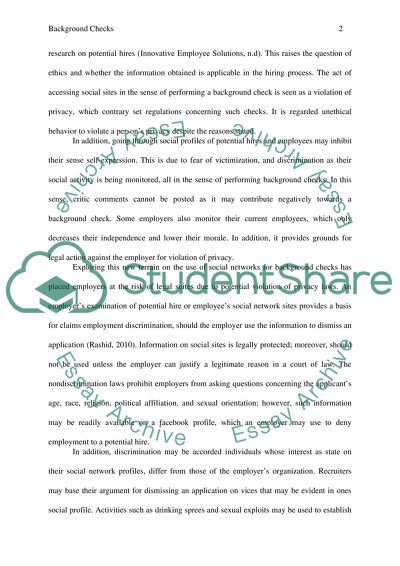Cite this document
(“Should companies routinely google applicants or look at their facebook Assignment”, n.d.)
Retrieved from https://studentshare.org/english/1606018-should-companies-routinely-google-applicants-or-look-at-their-facebook-page-as-part-of-reference-check-before-hiring
Retrieved from https://studentshare.org/english/1606018-should-companies-routinely-google-applicants-or-look-at-their-facebook-page-as-part-of-reference-check-before-hiring
(Should Companies Routinely Google Applicants or Look at Their Facebook Assignment)
https://studentshare.org/english/1606018-should-companies-routinely-google-applicants-or-look-at-their-facebook-page-as-part-of-reference-check-before-hiring.
https://studentshare.org/english/1606018-should-companies-routinely-google-applicants-or-look-at-their-facebook-page-as-part-of-reference-check-before-hiring.
“Should Companies Routinely Google Applicants or Look at Their Facebook Assignment”, n.d. https://studentshare.org/english/1606018-should-companies-routinely-google-applicants-or-look-at-their-facebook-page-as-part-of-reference-check-before-hiring.


